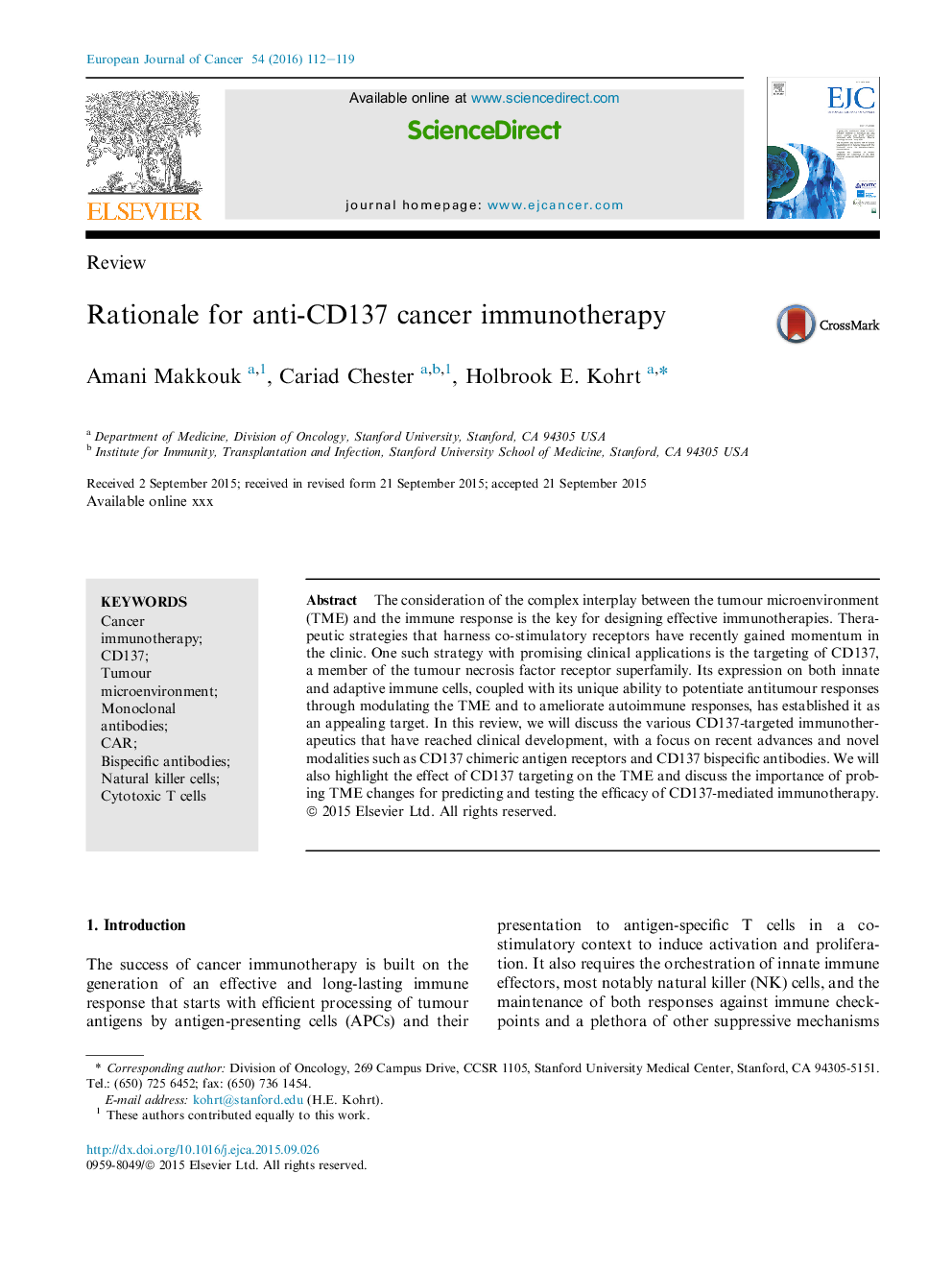| Article ID | Journal | Published Year | Pages | File Type |
|---|---|---|---|---|
| 8441554 | European Journal of Cancer | 2016 | 8 Pages |
Abstract
The consideration of the complex interplay between the tumour microenvironment (TME) and the immune response is the key for designing effective immunotherapies. Therapeutic strategies that harness co-stimulatory receptors have recently gained momentum in the clinic. One such strategy with promising clinical applications is the targeting of CD137, a member of the tumour necrosis factor receptor superfamily. Its expression on both innate and adaptive immune cells, coupled with its unique ability to potentiate antitumour responses through modulating the TME and to ameliorate autoimmune responses, has established it as an appealing target. In this review, we will discuss the various CD137-targeted immunotherapeutics that have reached clinical development, with a focus on recent advances and novel modalities such as CD137 chimeric antigen receptors and CD137 bispecific antibodies. We will also highlight the effect of CD137 targeting on the TME and discuss the importance of probing TME changes for predicting and testing the efficacy of CD137-mediated immunotherapy.
Keywords
Related Topics
Life Sciences
Biochemistry, Genetics and Molecular Biology
Cancer Research
Authors
Amani Makkouk, Cariad Chester, Holbrook E. Kohrt,
